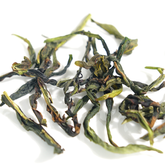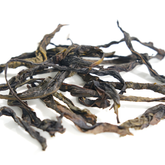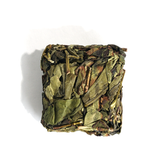what tea is good for digestion?|NPTEA
First, let’s understand the basic components of tea. Tea is rich in catechins, caffeine, amino acids, and vitamins, all of which provide various health benefits. Among them, tea polyphenols are one of the most important active compounds in tea, known for their antioxidant, anti-inflammatory, and antibacterial properties. Caffeine, on the other hand, has a stimulating effect, helping to boost mental alertness, while amino acids help regulate the nervous system and improve mood.When we drink tea, these compounds start to take effect in our body. Tea polyphenols promote the secretion of gastric juices, helping the stomach digest food more efficiently. However, high concentrations of tea polyphenols, especially when consumed on an empty stomach, can increase stomach acid and irritate the stomach lining, potentially leading to acid reflux or discomfort. Therefore, while moderate intake of tea polyphenols aids digestion, it’s important to avoid drinking too much tea or consuming it on an empty stomach. Caffeine and theobromine, found in tea, also play a role in aiding digestion by increasing stomach acid production, which helps break down and digest heavier foods like proteins and fats. This is one reason why Chinese people often enjoy drinking tea after meals. Furthermore, fermented teas, such as pu-erh tea, produce beneficial probiotics during the fermentation process, which improve gut health by enhancing the balance of the gut microbiota, further promoting digestion.
Caffeine and theobromine, found in tea, also play a role in aiding digestion by increasing stomach acid production, which helps break down and digest heavier foods like proteins and fats. This is one reason why Chinese people often enjoy drinking tea after meals. Furthermore, fermented teas, such as pu-erh tea, produce beneficial probiotics during the fermentation process, which improve gut health by enhancing the balance of the gut microbiota, further promoting digestion.
Best Teas for Digestion?
Black Tea:
Black tea undergoes fermentation, during which tea polyphenols are partially converted into theaflavins and thearubigins, which are known to support digestion. Black tea stimulates the secretion of gastric juices and promotes intestinal movement, aiding in the digestion and absorption of food. Additionally, black tea has a calming effect on the nerves and helps reduce stress, improving symptoms of indigestion. Popular Chinese black teas include Keemun black tea, Lapsang Souchong, Jin Jun Mei, and Dianhong.

Oolong Tea:
Oolong tea is a semi-fermented tea, sitting between green and black teas. It contains rich tea polyphenols and caffeine, which promote the secretion of gastric juices and accelerate the movement of the digestive tract, making it effective for digestion. Additionally, oolong tea can help lower blood pressure and prevent cardiovascular diseases. Famous varieties of oolong tea include Tie Guan Yin, Dong Ding Oolong, and Da Hong Pao, with its origins in China’s Fujian province.

Pu-erh Tea (Ripe):
Ripe pu-erh tea is a fully fermented tea with a unique flavor and aroma. It is rich in tea polyphenols, caffeine, and various trace elements that help stimulate gastric juice secretion and promote intestinal movement, aiding digestion. Additionally, pu-erh tea can help reduce cholesterol and prevent obesity and cardiovascular diseases. Pu-erh tea is grown in Yunnan province, home to some of the world’s oldest ancient tea forests, making the quality of these teas particularly high.

Tips for Drinking Tea
While tea can aid digestion, improper tea-drinking habits may have adverse effects on the stomach, especially for those with sensitive digestion. Here are a few tips to keep in mind:
- Avoid drinking tea on an empty stomach: Drinking tea on an empty stomach can lead to excessive gastric acid production, irritating the stomach lining and causing discomfort. It’s best to enjoy tea about 30 minutes after a meal.
- Avoid drinking overly strong tea: Strong tea can irritate the stomach lining, leading to discomfort. Be mindful of the amount of tea leaves used and the steeping time when brewing tea.
- Choose fermented teas: If you have a sensitive stomach, avoid light-fermented teas such as green tea and white tea, as their high polyphenol content can irritate the stomach. Opt for more fermented teas like black tea or ripe pu-erh, which are gentler on digestion.
By following these guidelines, you can enjoy tea’s digestive benefits while avoiding any potential discomfort.
SEE MORE
If you have questions about selecting tea:
Learn-more-about-chinese-tea
If you have questions about the benefits of tea:
Health-benefits-of-chinese-tea
If you have questions about brewing tea:
How-to-brew-loose-leaf-tea






